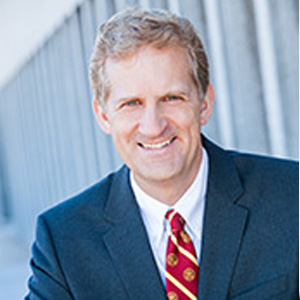Andrew Guzman on Identity and Community
Daily Trojan – ICLE Academic Affiliate and University of Southern California Provost Andrew T. Guzman was profiled by the Daily Trojan in a story about his Latino heritage and experience as the Gould School of Law’s first Latino dean. You can read full piece here.
Provost and Senior Vice President for Academic Affairs Andrew Guzman grew up between his Canadian and Dominican identities. Born and raised in Ottawa, Guzman often traveled to his father’s homeland, the Dominican Republic, to visit his family. During Latinx/e Heritage Month, the Daily Trojan sat down to talk to USC’s first Latine provost — and, formerly, the first Latine dean of the Gould School of Law — about what his Latino identity means to him and how his bicultural upbringing has shaped his career.
This interview has been edited for length and clarity.
Daily Trojan: What does it mean for you to be Latino?
Andrew Guzman: I spent a lot of time in the Dominican Republic when I was very young. It became about my lived experience. It’s always been part of my existence.
My father came to Canada in the ’50s. As the only Latino kid in a very white private school, his strategy — which some immigrants adopt — was assimilation. I grew up in a household that, in terms of its Canadian cultural context, would have looked very typical. But then I would frequently go to the Dominican Republic where everything was obviously typically Dominican.
I lived in two different places, which seemed totally normal when I was a kid. But, in retrospect, it is not normal for everybody. When I was 14, I’d go down to the Dominican Republic, and the cousins that were my age used to drink beer. I’d drink beer with them sitting next to my parents. If I ever was caught drinking beer in Ottawa at 14, I would have gotten in trouble. It never struck me as odd that these were both true at the same time. For me, it has that sort of bicultural reality.
I’m open-minded because of that. I saw my Dominican relatives, I saw my English Canadian reality at home, and I had French Canadian school teachers. When you’re a kid, you don’t try to make these distinctions, and they all resonated with me in the same way.





